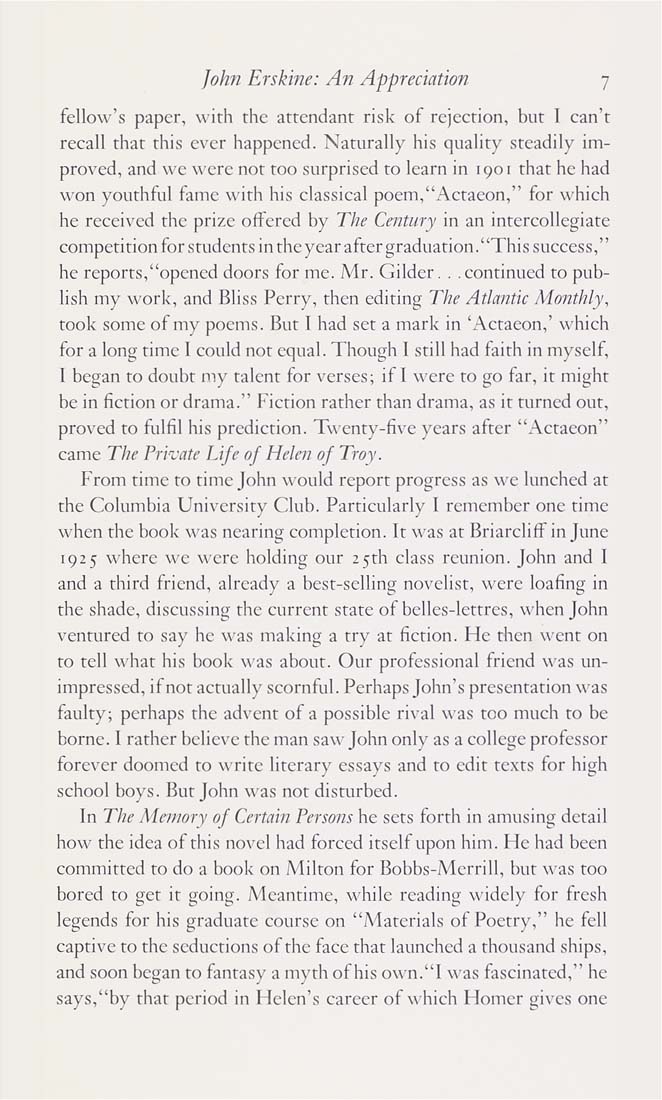Columbia Library columns (v.7(1957Nov-1958May))
(New York : Friends of the Columbia Libraries. )
|
||
|
|
|
|
| v.7,no.1(1957:Nov): Page 7 |

John Erskine: An Appreciation 7 fellow's paper, with the attendant risk of rejection, but I can't recall that this ever happened. Naturally his quality steadily im¬ proved, and we were not too surprised to learn in 1901 that he had won youthful fame with his classical poem,"Actaeon," for which he received the prize offered by The Century in an intercollegiate competition for students in the year after graduation."This success," he reports,"opened doors for me. Mr. Gilder. . . continued to pub¬ lish my work, and Bliss Perry, then editing The Atlantic Monthly, took some of my poems. But I had set a mark in 'Aetacon,' which for a long time I could not equal. Though I still had faith in myself, I began to doubt my talent for verses; if I were to go far, it might be in fiction or drama." Fiction rather than drama, as it turned out, proved to fulfil his prediction. Twenty-five years after "Actaeon" came The Private Life of Helen of Troy. From time to time John would report progress as wc lunched at the Columbia University Club. Particularly I remember one time when the book was nearing completion. It was at Briareliff in June 1925 where we were holding our 25th class reunion. John and I and a third friend, already a best-selling novelist, were loafing in the shade, discussing the current state of belles-lettres, when John ventured to say he was making a try at fiction. He then went on to tell what his book was about. Our professional friend was un¬ impressed, if not actually scornful. Perhaps John's presentation was faulty; perhaps the advent of a possible rival was too much to be borne. I rather belicxx the man saw John only as a college professor forever doomed to \\'rite literary essays and to edit texts for high school boys. But John was not disturbed. In The Memory of Certain Persons he sets forth in amusing detail how the idea of this novel had forced itself upon him. He had been committed to do a book on Milton for Bobbs-Mcrrill, but was too bored to get it going. Meantime, while reading widely for fresh legends for his graduate course on "Materials of Poetry," he fell captive to the seductions of the face that launched a thousand ships, and soon began to fantasy a myth of his own."I was fiseinatcd," he says,"by that period in Helen's career of which Homer gives one |
| v.7,no.1(1957:Nov): Page 7 |







